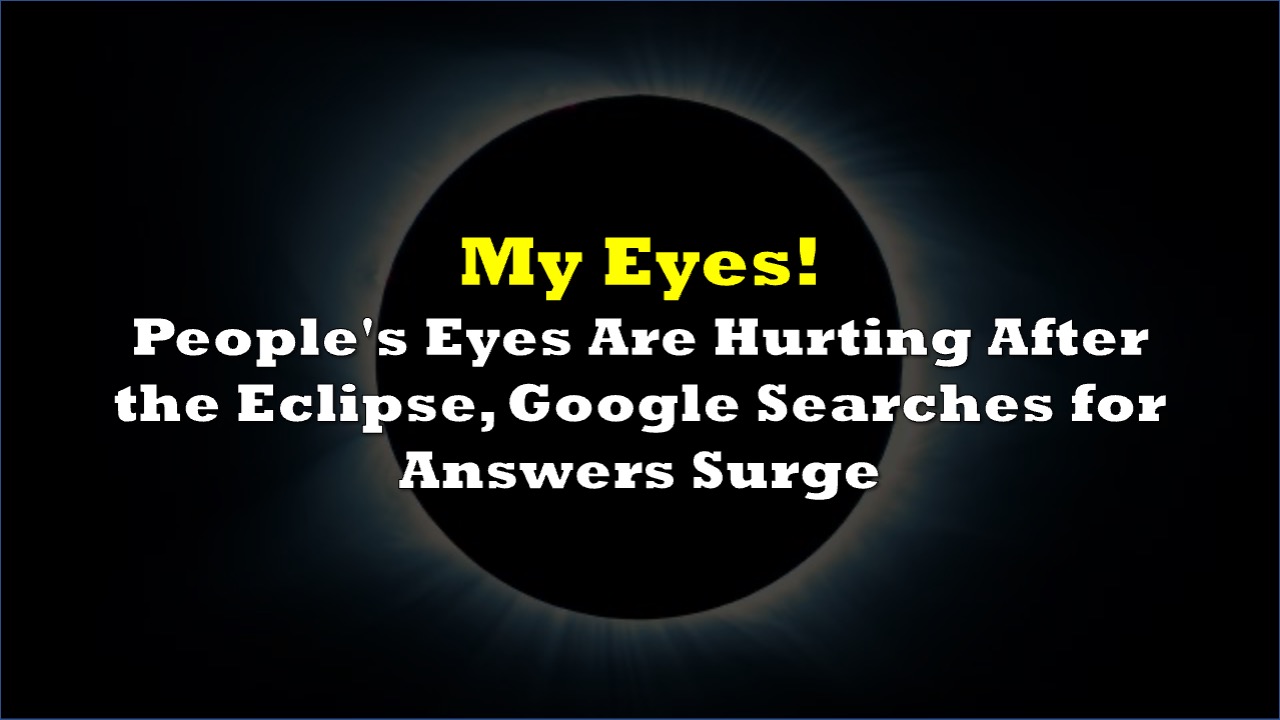Following Monday’s total solar eclipse, Google searches related to eye pain — such as “hurt eyes,” “my eyes hurt,” and “why do my eyes hurt” — spiked, suggesting many in the eclipse’s path were worried about potential eye damage from viewing the event.
Eye experts confirmed that it’s normal to feel concerned, as looking directly at the sun without proper protective equipment can indeed harm one’s vision. However, cases of long-term damage after eclipses are not common.
People's eyes are hurting, and they're seeking answers pic.twitter.com/RZEPGKdvgk
— Shalom Goodman (@ShalomGood) April 8, 2024
There are two main types of injuries possible from sun exposure — a burn to the outside of the eye, known as solar keratitis, and damage to the retina, called solar retinopathy. Solar keratitis typically causes redness, tearing, and other temporary symptoms that resolve within a day or two. It is more commonly associated with high-altitude activities like mountain climbing.
Solar retinopathy, on the other hand, can cause more serious vision problems like blind spots, wavy lines, floaters, and blurry vision. These symptoms typically develop within 24 hours of sun exposure and do not involve pain, as the retina lacks pain receptors.
Experts emphasize that it takes very little time — as little as 1-2 seconds — to damage eyes by looking directly at the sun. They advise that if anyone experiences vision issues after an eclipse, they should seek medical attention right away, as there is no treatment for solar retinopathy, though some may recover over time.
While only around 100 cases of “eclipse-related retinopathy” were reported after the 2017 total solar eclipse, children and young adults were found to be the most vulnerable. The American Astronomical Society has also warned of dangerous counterfeit solar eclipse glasses being sold, which may not adequately protect the eyes.
Is this part of the reason?
Amazon issued a warning about faulty solar eclipse viewers on Friday, saying in an email to customers that the product “was not included in the American Astronomical Society’s list of safe suppliers of solar eclipse viewers and filters and therefore may not be safe for viewing a solar eclipse. If you still have this product, out of an abundance of caution, we recommend you not use it for the upcoming eclipse on April 8.”
ALERT: Solar eclipse glasses sold on Amazon, in stores recalled pic.twitter.com/j2Lik91exS
— Breaking911 (@Breaking911) April 8, 2024
The AAS warned that these fakes are no darker than regular sunglasses. Legitimate solar glasses should be “at least 1,000 times darker than even the darkest regular sunglasses.”
Information for this story was found via NBC News, New York Post, and the sources and companies mentioned. The author has no securities or affiliations related to the organizations discussed. Not a recommendation to buy or sell. Always do additional research and consult a professional before purchasing a security. The author holds no licenses.




